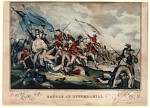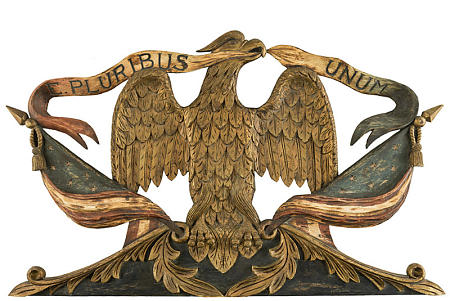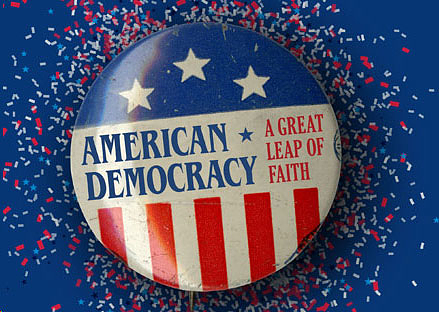The Woodrow Wilson National Fellowship Foundation has revealed that its new survey of 41,000 Americans found that only 27 percent of those under the age of 45 nationally were able to demonstrate a basic understanding of American history. Nationally, only four in 10 Americans passed a basic exam on the topic.
According to the organizations’ president, Arthur Levine, “Unfortunately, the Woodrow Wilson Foundation has validated what studies have shown for a century: Americans don’t possess the history knowledge they need to be informed and engaged citizens.”
The survey found only 15 percent of American adults could correctly note the year the U.S. Constitution was written and only 25 percent knew how many amendments there are to the U.S. Constitution. Further, 25 percent did not know that freedom of speech was guaranteed under the First Amendment.
“American history education is not working, as students are asked to memorize dates, events and leaders, which the poll results shows are not retained in adulthood,” Levine said. “Based on our research, this is not an issue of whether high school history teachers are adequately prepared or whether kids study American history in school. The answer to both questions is yes. This is an issue of how we teach American history. Now it is too often made boring and robbed of its capacity to make sense of a chaotic present and inchoate future. Instead, knowledge of American history must serve as an anchor in a time when change assails us, a laboratory for studying the changes that are occurring and a vehicle for establishing a common bond when social divisions are deep. This requires a fundamental change in how American history is taught and learned to make it relevant to our students lives, captivating and inclusive to all Americans.”
The survey confirms a deep concern that the American education system is failing, in some cases intentionally so, to provide adequate instruction in U.S. history. The New York Post’s Karol Markowicz wrote that “Don’t know much about history . . .,’ goes the famous song. It’s an apt motto for the Common Core’s elementary school curriculum…A 2012 story in Perspectives on History magazine by University of North Carolina professor Bruce Van Sledright found that 88 percent of elementary school teachers considered teaching history a low priority… Van Sledright also found that teachers just didn’t know enough history to teach it. He wrote there was some ‘holiday curriculum as history instruction,’ but that was it.”
A Blaze report noted that George Washington University decided that even history majors did not have to take any courses in American History.
In 2015, ABC’s KSFY affiliate reported that “the South Dakota Board of Education approved new guidelines that do not require high schools to teach U.S. history.”
A Nations Report Card study found that only 18% of eighth grade students are proficient in U.S. history. Similarly, a worrisome 2014 survey of 1,416 adults recently conducted by the Annenberg Public Policy Center found that:
- While little more than a third of respondents (36 percent) could name all three branches of the U.S. government, just as many (35 percent) could not name a single one;
- Just over a quarter of Americans (27 percent) know it takes a two-thirds vote of the House and Senate to override a presidential veto; and
- One in five Americans (21 percent) incorrectly thinks that a 5-4 Supreme Court decision is sent back to Congress for reconsideration.
Also in 2014, Capitol Times.com quotes a statement by Arizona state legislator Steve Montenegro, a Republican, that “Civics and Social Studies and History are being boxed out of the classroom.” He notes that “96% of a sample group of high schoolers in Arizona and Oklahoma failed to pass a basic test on citizenship issues.”
In a commentary, William J. Dodwell provides his analysis for the growing exclusion of U.S. history:
“Academia has long been a bastion of the political left…The origin of the malaise derives from the ideological and administrative politicization of public education. Liberal elected officials and like-minded school administrators embrace identity politics and other forms of political correctness that alter academic content and teaching modalities. At the college level, professors also promote the progressive agenda… In the primary and secondary schools, teachers might not be as ideologically motivated but are controlled by their left-leaning administrative authorities, that is, superintendents and principals… The radical departure from traditional curricula and academic standards linked to the institution of political correctness in the schools and colleges raises serious questions as to educational purpose. Has the left deliberately diluted education in its self-interest… Education authorities have curtailed or eliminated the teaching of civics and American history such that many children do not even know who George Washington was. Daniel Henninger writes in The Wall Street Journal, June 11, 2015, about the College Board’s revision of the Advance Placement examination for U.S. history. The changes recast the subject in a framework of ‘different contexts of U.S. history, with special attention given to the formation of gender, class, racial and ethnic identities…”
Thomas Jefferson once wrote ““If a nation expects to be ignorant and free, in a state of civilization, it expects what never was and never will be.” The lack of instruction in American history is a clear, present, and immediate threat to the health of the U.S.
Illustration: Battle of Bunker Hill (Smithsonian Institution)


